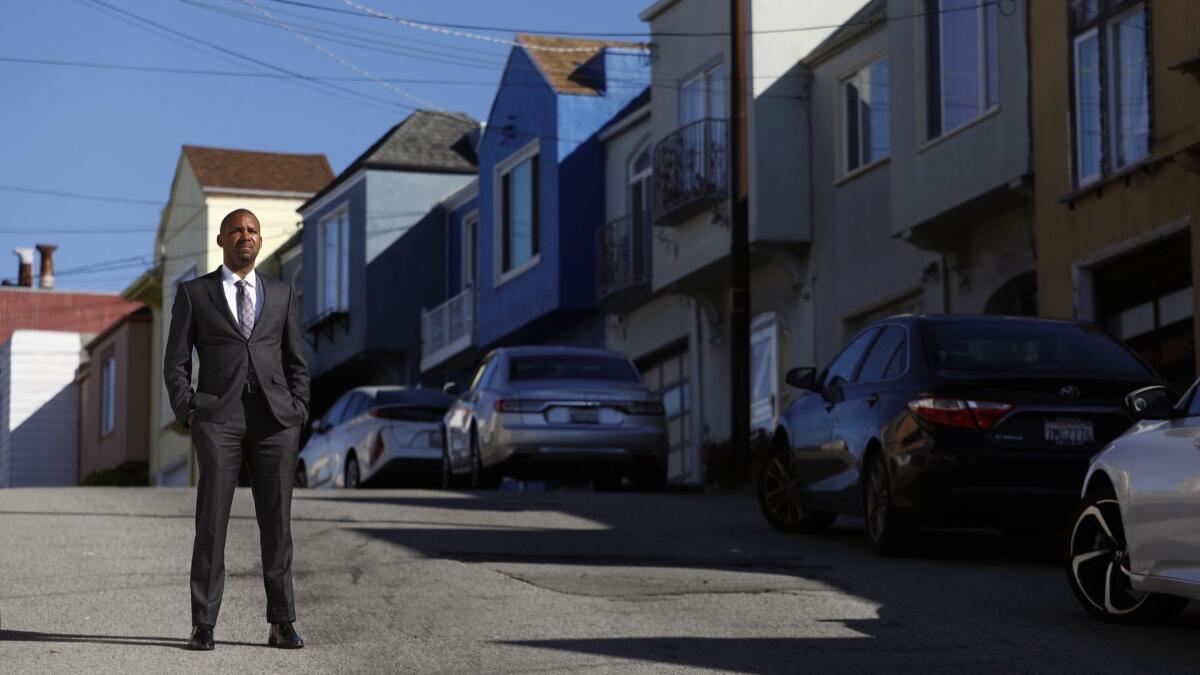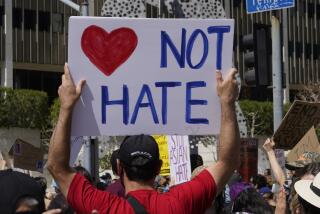San Francisco lawmaker proposes CAREN Act, making racially biased 911 calls illegal

As viral videos continue to show 911 calls being leveraged to threaten people of color, a San Francisco supervisor has introduced a new proposal to criminalize discriminatory emergency calls.
Supervisor Shamann Walton, who introduced the legislation Tuesday, calls it the CAREN Act. The acronym stands for Caution Against Racially Exploitative Non-Emergencies, but the proposal seems to carry more meaning.
The name “Karen” has been used on social media to identify antagonistic, entitled white women. More recently, the label has been applied to those caught on video showing a prejudicial bias toward people of color, particularly calling police while exhibiting a false sense of distress.
Such calls aren’t new, but they have received growing attention in recent weeks after video of a white woman calling police on a Black man in Central Park went viral six weeks ago. Amy Cooper called authorities to report she was being threatened by “an African American man.” The man — Christian Cooper, who was in the park to watch birds — videotaped the exchange and posted it on Twitter.
In the wake of the death of George Floyd, a Black man killed in police custody in Minneapolis, dozens of “Karen” videos have spread across the internet, triggering outcry and ongoing conversations about race, access to public space and when it’s appropriate to call police.
But Walton says enough is enough.
“This is the CAREN we need,” he wrote in a tweet.
“Within the last month and a half in the Bay Area, an individual called the police on a Black man who was dancing and exercising on the street in his Alameda neighborhood and a couple called the police on a Filipino man stenciling ‘Black Lives Matter’ in chalk in front of his own residence in San Francisco’s Pacific Heights,” Walton said in a news release.
He noted that California law made filing false police reports illegal but explained that his legislation went further by designating discriminatory 911 calls as hate crimes and providing civil remedy for people harmed by such calls.
“Under existing laws,” Walton said, “there are no consequences for people who make fraudulent emergency calls based on the perception of another individual to be a threat due to their race, religion, ethnicity, religious affiliation, gender, sexual orientation, gender identity, or outward appearance.”
California Assemblyman Rob Bonta, who represents Oakland and serves as assistant majority leader, proposed similar legislation at the statehouse. An amendment to his AB 1550 bill would also designate discriminatory calls as hate crimes and provide civil remedy for those harmed.
“We must not allow people to use our 911 and law enforcement systems as weapons for hate,” Bonta said. “If you are afraid of a black family barbecuing in the community park, a man dancing and doing his normal exercise routine in the bike lane or someone who asks you to comply with dog leash laws in a park, and your immediate response is to call the police, the real problem is with your own personal prejudice.”
The “Karen” meme has taken on new meaning during the coronavirus crisis as a label for someone who feels entitled to prioritize her own desires over public safety
Walton said his ordinance and Banta’s bill were “part of a larger nationwide movement to address racial biases and implement consequences for weaponizing emergency resources with racist intentions,” alongside similar bills in New York and Oregon.
AB 1550 is currently in the California State Senate’s Safety Committee. The CAREN Act has a 30-day hold after introduction but will likely then be heard by a Board of Supervisors committee and go into effect “30 days after the mayor signs the ordinance in San Francisco,” Walton said.
On Monday, Amy Cooper was charged with filing a false police report for her viral Central Park incident.
More to Read
Sign up for Essential California
The most important California stories and recommendations in your inbox every morning.
You may occasionally receive promotional content from the Los Angeles Times.











